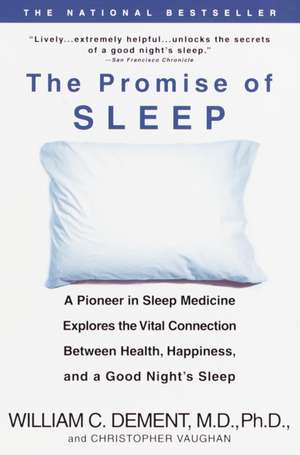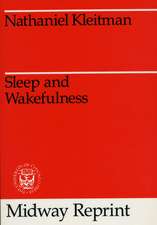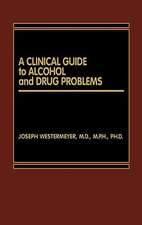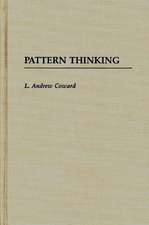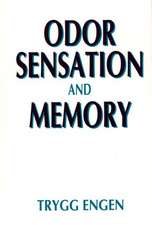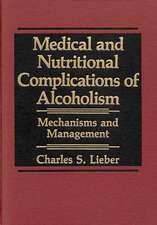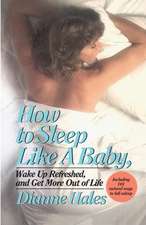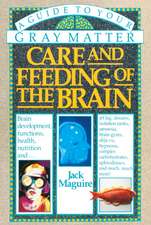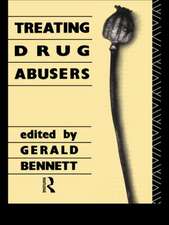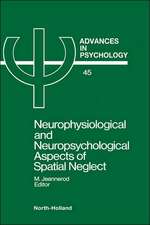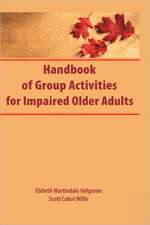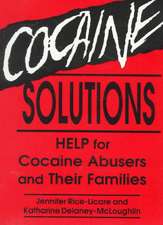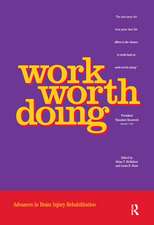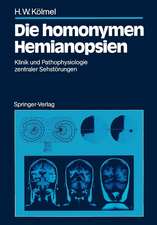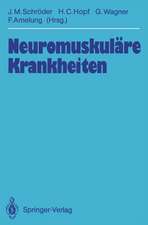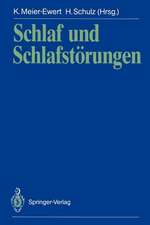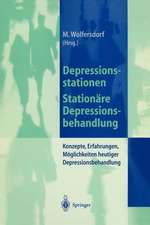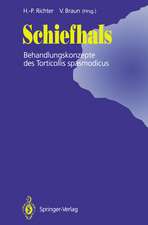The Promise of Sleep: A Pioneer in Sleep Medicine Explores the Vital Connection Between Health, Happiness, and a Good Night's Sleep
Autor M. D. Dement, William C., Christopher Vaughnen Limba Engleză Paperback – 29 feb 2000
Healthful sleep has been empirically proven to be the single most important factor in predicting longevity, more influential than diet, exercise, or heredity. And yet we are a sleep-sick society, ignorant of the facts of sleep--and the price of sleep deprivation. In this groundbreaking book, based on decades of study on the frontiers of sleep science, Dr. William Dement, founder and director of the Stanford University Sleep Research Center, explains what happens when we sleep, when we don't, and how we can reclaim the most powerful--and underrated--health miracle of all.
Taking us on a fascinating tour of our sleeping body and mind, Dr. Dement reveals the price we have paid for ignoring sleep--an epidemic of heart disease, 33 percent of traffic-fatigue-related accidents, and immeasurable mental and psychological disadvantages. And he offers a hands-on prescription for vibrant good health and longevity, including...self-tests to determine how much sleep you really need...the role of prescription and over-the-counter sleeping aids...the latest research on how sleep affects the immune system...how to combat insomnia, snoring, and jet lag...plus information on sleep disorder clinics nationwide, Web sites, and more.
Taking readers on a fascinating tour of our sleeping body and mind,
Dr. William C. Dement reveals the price paid for ignoring sleep--an epidemic of heart disease, traffic-fatigue-related accidents (responsible for a full third of all traffic accidents), and immeasurable mental and psychological disadvantages. Offering a hands-on prescription for vibrant good health and longevity, THE PROMISE OF SLEEP includes self-tests to determine how much sleep you really need, full information on the role of prescription and over-the-counter sleeping aids, the latest research on how sleep affects the immune system, helpful methods for combating insomnia, snoring, and jet lag, plus information on sleep disorder clinics nationwide, sleep disorder Web sites, and more. -->
Preț: 106.60 lei
Preț vechi: 112.20 lei
-5% Nou
20.40€ • 21.22$ • 16.84£
Carte disponibilă
Livrare economică 24 martie-07 aprilie
Specificații
ISBN-10: 0440509017
Pagini: 512
Dimensiuni: 155 x 231 x 36 mm
Greutate: 0.59 kg
Editura: dell
Notă biografică
Christopher Vaughan is the author of How Life Begins: The Science of Life in the Womb, named as one of the best books of 1996 by the National Association of Libraries. He lives in Palo Alto, California, with his wife and two children.
Extras
Just a few months ago a colleague of mine had the good fortune of being able to save her nephew's life. Adam was only 12 months old, but it was clear that something was terribly wrong with him. While other kids his age were beginning to walk and talk, Adam couldn't even crawl. His weight and height were far below the norm for his age. He was a tiny, sad, emaciated specter. Every single day of the year, Adam's parents held him and hovered over him, frustrated, heartbroken, frantic with worry. Did Adam have cancer? Some awful birth defect? No. After tens of thousands of dollars' worth of medical testing, their child had been categorized only as having a "failure to thrive." This is actually a nondiagnosis--a medical throwing up of the hands that meant his doctors had no idea what was wrong. The small army of pediatricians who saw Adam could only say that this baby might waste away and die, or might never be normal if he did survive.
During a visit to her sister's house, my colleague observed Adam while he slept. Being knowledgeable about sleep disorders, she realized right away that the boy could not breathe when he was asleep. His disorder, well known to sleep specialists, was, in this instance, caused mainly by large tonsils and adenoids. His tiny air passages, barely adequate while he was awake, were completely closed off during sleep. A moment after falling asleep he would stop breathing, and within a minute Adam's oxygen-starved brain would wake him up. After taking a few breaths he would fall asleep again and repeat the cycle.
The sleep specialist's diagnosis was passed on to Adam's pediatrician, who still could not be persuaded to have the boy's tonsils and adenoids taken out. When the procedure was finally performed by another, more enlightened doctor found by the family, the thin and weak little boy underwent a dramatic change. Within a few weeks he was clearly thriving physically and mentally.
Today, as I write, six months have passed, and this previously despairing family is living with a miracle. Their little boy is taking his first steps, he can crawl everywhere, he is beginning to talk, and he is gaining a pound a month. Sadly, the first terrible year of Adam's life may have lasting effects on his development, but at the moment there is too much relief and happiness to dwell on that.
This story is only one of hundreds I hear year after year that confirm something almost no one will acknowledge: We are a sleep-sick society. I understand this sad fact all too well. I have spent my entire career, more than 45 years of nights, studying sleep. When I first entered medical school in 1951, sleep was little more than a curiosity to the scientific world, and it was almost totally ignored in medical practice. Over the ensuing decades, we have learned an enormous amount about the nocturnal third of our lives. Today sleep science is exciting and diversified, utilizing all the tools of modern molecular biology and addressing great scientific questions. Sleep medicine, which I started at Stanford University, where several passionately committed colleagues and I struggled to nurture it through its first uncertain and difficult years, has grown into a mature clinical discipline with stunningly skilled practitioners able to diagnose and treat a huge array of disorders. We have accumulated an enormous reservoir of knowledge about how sleep works and how it affects our other bodily systems. Quite frankly, when I was the only person in the world grinding out all-night sleep recordings at the University of Chicago, and when I decided to extend the practice of medicine to the sleeping patient at Stanford University, I did not expect to achieve or participate in success on such a large scale.
Unfortunately, doctors and the general public know almost nothing of this vast store of knowledge. A diagnosis like Adam's, which could have been made by a six-year-old child with the right information, was completely missed by medical specialists for months. If even the basic facts about sleep had been known and understood by the general public and its doctors over the years, there's no way of knowing how many human beings now dead--possibly millions; perhaps even relatives of yours--might be alive today. Never before in human history has a disparity between the amount of scientific knowledge and the benefit of that knowledge to society been so tragically vast.
As a result of this alarming lack of awareness about sleep in the medical community, doctors simply miss or ignore a veritable flood of sleep disorders. Hundreds of thousands of people worldwide are dying each year in large part because of undiagnosed and untreated sleep problems--tens of thousands in the United States alone. For instance, if someone you know has had a heart attack, there is a good chance (especially if the victim is young) that an undiagnosed sleep disorder contributed to the problem. I have seen near-miraculous cases in which a patient's advanced heart disease was dramatically reversed after his sleep problem was diagnosed and treated--although cardiologists had overlooked the underlying sleep problem for years.
Ignorance about sleep results in far more than medical problems, however. Less dramatic than medical tragedy, but nearly as sad, are the people all around us who are fatigued and exhausted every day because they don't understand how to manage their sleep, betrayed by their ignorance about the mechanics of sleep debt and the intricate biological clock that ticks away inside us. Consider these statistics: Half of us mismanage our sleep to the point where it negatively affects our health and safety. On average, each of us sleeps one and a half fewer hours each night than our great-grandparents did a century ago. I have observed people stagger through their lives in a daze, misunderstanding the roots of their sleepiness, or not even recognizing that they are sleepy. It may seem impossible that people can be very sleepy and not know it, but this fact has been proven beyond the shadow of a doubt. Study after study has revealed that people who are chronically sleep deprived can be completely unaware of the root cause of their overwhelming fatigue. Many people conclude that being run down, apathetic, and glum must be the normal human condition, or can be attributed to boredom, warm rooms, or heavy meals.
All too often, lack of awareness leads to a tragedy like the one that befell Michael Doucette. In 1989 the New Hampshire teenager competed in a national driver safety competition and won the distinction of being dubbed America's Safest Teen Driver. He was awarded a Dodge Shadow automobile in recognition of his mastery of the principles of safe driving. Early the next year, while driving his new car 25 miles home from college, he fell asleep at the wheel. As the road curved to the right, his car continued straight into the oncoming lane and collided head-on with another car. Both Michael and the young woman in the other car were killed.
When I talked to Michael's father, he told me that "Safe driving was an obsession with Michael." The teenager's driving instructor later told me that the issue of sleep deprivation and drowsy driving was never discussed in his school or anywhere else, as far as he knew. Although Michael was fanatical about driving safety, he was never taught about one of the gravest threats to road safely. In a recent survey by the National Sleep Foundation, 23 percent of the people who were polled admitted falling asleep while driving in the past year. With this in mind, it should be no surprise that sleep deprivation plays a major role in most accidents labeled "cause unknown," or that an estimated 24,000 people die each year in accidents caused directly or in part by falling asleep at the wheel. Almost all of us, regardless of our formal education, are dangerously uninformed about drowsy driving and its causes.
For most of my career as scientist, sleep doctor, and clinic and laboratory administrator, I have worked unceasingly to change the way society deals with sleep. Why? Because the current way, or nonway, is so very bad. As a compassionate person, I have a deep concern about the millions of people whose suffering could be greatly reduced by implementing the knowledge we now possess. It greatly saddens me to think about the millions, possibly billions, of people whose lives could be improved if they understood only a few simple principles. Changing the way society and its institutions deal with sleep will do more good than almost anything else I can conceive, or certainly anything that was ever remotely within my grasp to accomplish.
For a number of years, I helped lobby the U.S. Congress at least to take a look at the problem. It responded in 1990 by creating the National Commission on Sleep Disorders Research, of which I was named chairman. When we fulfilled our mandate to study and make recommendations about sleep disorders in the United States, the commission estimated the financial cost of sleep disorders at tens of billions of dollars per year. The human costs, of course, are incalculable.
Although I had already been trying to promote change for many years, my work on this commission truly separated me from the so-called academic ivory tower. I had always believed that successful medical research--the research that leads to treatments and cures for disease--would quickly flow to those in need. The work of the National Commission clearly demonstrated that the flow of benefits to the general public is largely blocked where sleep deprivation and sleep disorders are concerned.
For me and the other 19 commissioners, the information-gathering public hearings we held in several American cities brought the statistics to life, connecting them to human faces, human dramas. We heard heartbreaking stories about people living through years of failure and fatigue, suffering terribly from the needless death of a spouse or child. We also learned how the medical establishment could allow this to go on with the shocking discovery that doctors-in-training often get only an hour or two of instruction in sleep problems in their four years of medical school--and frequently none at all.
These hearings revealed to me how very little of the wealth of information mined by sleep specialists has gotten out to the general population. The many millions who need help, whose lives can be changed or saved by a little knowledge about sleep, might just as well be living in 1950. For the majority of the population that could feel revitalized and renewed by understanding a few simple sleep principles, I might as well have been running a chain of beauty parlors for the last four decades.
The commission titled its final report to the Congress "Wake Up America! A National Sleep Alert," and recommended increased support for sleep research, and an effective national awareness campaign to be carried out by the federal government. We commissioners naively thought that our report was a "job well done" and that we could go back to our laboratories and clinics. Well, that was seven years ago, and America slumbers on. The Congress may ask for recommendations but that doesn't mean it acts upon them. My faith in government, the Congress, the Public Health Service, and the National Institutes of Health has been sorely challenged. We should all feel outrage and shame if even one child or one adult is allowed to sicken and die unnecessarily, or if even one life is blighted needlessly by fatigue or pernicious insomnia.
Very sadly for my personal life and family, I had learned far too much to return meekly to academia. I have since been sounding the alarm in every way I know. Almost every week of the year, I travel across the country to speak to civic and business groups, governmental bodies, and health professionals; I even continue to hound the Congress about the hidden epidemic of sleep disorders in our midst. But little that I report finds its way to the wider public, and the costs to us, both individually and as a society, continue to mount.
Another top priority of the National Commission was education and training of primary care physicians. Clearly, as the gatekeepers of medicine, knowledgeable primary care physicians could do an enormous amount. When I decided that I would do whatever I could to educate primary care physicians, it occurred to me that the very best place to launch the crusade to change the way society deals with sleep would be in my own hometown, Walla Walla, Washington.
When I left Walla Walla as a young man, I never imagined that my professional life would come full circle, back to the little town where I grew up. I have now lived all over the United States, and visited many of the world's great cities to attend scientific sleep meetings, but my return to Walla Walla has been the most rewarding and exciting phase of my professional career.
My professional involvement with my hometown began slowly. I often (but not often enough) returned to Walla Walla to visit my mother, Kathryn Dement, and on these trips I began to talk to doctors about sleep medicine. In 1988 I was invited to Walla Walla to give a public lecture on sleep in the big auditorium at Whitman College. Afraid that the auditorium would be nearly empty, I devoted my whole $500 honorarium to advertising the upcoming lecture. It turned out that $500 could buy a lot of advertising in Walla Walla. There were daily half-page advertisements in the city newspaper, and when I walked into the auditorium on the night of the lecture, I was delighted to find it absolutely packed. My mother may not have understood exactly how I earned my living, but as she looked around at the packed house it was obvious that people were interested in hearing me talk about it. People whose careers are mysterious to their parents in this rapidly changing world can understand what a magical moment it was. I will cherish it as long as I live.
In a flash of inspiration, I realized that the best way to start changing the way society deals with sleep was to start with my own hometown, which had already demonstrated its interest. In what has come to be known as the Walla Walla Project, I set out to educate and train Walla Walla doctors in the basics of sleep medicine and to see what impact that knowledge had on their practices and patients. An added benefit of the study was my new need to travel there relatively frequently, allowing me to visit my mother more often.
I was extremely fortunate to be joined by my friend and colleague in sleep medicine at Stanford, the late Dr. Gèrman Nino-Murcia. To establish a baseline, we first reviewed the records of approximately 750 patients; as expected, sleep disorder diagnoses were absent. After the baseline review, Dr. Nino-Murcia and I conducted training sessions for all interested health professionals. The Walla Walla primary care physicians then began diagnosing and treating sleep disorders patients. All the cases were discussed in detail in weekly telephone conferences held with Dr. Nino-Murcia and me. Then, as the Walla Walla physicians acquired more and more expertise, only complicated and difficult cases were discussed.
Since it was the first time anything like it had been attempted, the Walla Walla Project began slowly. However, from today's perspective, the results of this project have been astounding. The Walla Walla physicians were amazed by the large number of patients they found to have serious sleep disorders. All of these patients had been seen at the clinic on multiple occasions previously, yet their sleep disorders were not recognized until the Walla Walla Project was well under way. The physicians participating in the project have since acquired the skills and experience to manage any sleep disorder entirely on their own. Three Walla Walla physicians have learned to score and interpret sleep tests. Four Walla Walla primary care physician, Dr. Richard Simon, is now a diplomate of the American Board of Sleep Medicine, and with several colleagues, has founded a fully accredited sleep disorders center. In a most touching gesture, this excellent clinical resource was christened as the Kathryn Severyns Dement Sleep Disorders Center.
I am excited and gratified that sleep has now entered the mainstream of Walla Walla society as a fully qualified member of the basic triumvirate of health: good nutrition, physical fitness, healthy sleep. A sleep curriculum is being prepared for Walla Walla's two middle schools and high schools. Material covering the nature of sleep, sleep deprivation, biological rhythms, and the essentials of healthy sleep is being introduced in its three small colleges.
In addition to our work in Walla Walla, we are working nearby in Moscow, Idaho, where we have evaluated every patient in a single primary care practice, with startling results. No patient in the practice had received a specific sleep disorders diagnosis as of the end of 1996. But when we evaluated this patient population, we found that more than half of them presented obvious symptoms of one or more sleep disorders. Given these results, and assuming that the Moscow doctors are representative of those in the rest of the nation, it is clear that primary care physicians are missing important diagnoses and must fully integrate sleep medicine into the general practice of medicines.
There is one thing I must make absolutely sure that everyone understands. Primary care physicians are absolutely not responsible for the neglect of sleep disorders in America today. They are as much the victims of the lack of medical school teaching as everyone else. In my opinion, the tiny band of primary care physicians who have already tackled the sleep disorders problem head-on are heroes worthy of the highest accolades.
In Walla Walla as I write, about 2,000 seriously ill citizens have been diagnosed and treated, first at the Walla Walla clinic and in the past two years at the Kathryn Severyns Dement Sleep Disorders Center. The results of the Walla Walla project have been a mind-boggling revelation. In those suspected of having apnea, 80 percent of the sleep tests have revealed far-advanced illness. This means that these patients became ill decades ago, and as the years passed, they simply got sicker and sicker. The 80 percent figure is likely the same as would be found in other communities but such an effective sleep disorder and awareness program has not been done beyond Walla Walla.
Several thousand Walla Walla citizens have already received or will soon receive clinical salvation through treatment, and the potential for salvation elsewhere is awesome. An example: One of Dick Simon's many patients was an overweight 60-year-old who was overwhelmingly fatigued. The only thing he could do was sit around all day long, frequently dozing off in his chair. He was also in far advanced congestive heart failure. The slow failure of his heart muscle caused massive tissue swelling called edema. He could not walk one block without becoming very short of breath. When he lay down, the pressure of tissue and body fluids on the heart and lungs also made it hard to breathe. He had been hospitalized many times. The heart failure was assumed to be secondary to high blood pressure, which did not respond to treatment.
In less than a minute, Dick recognized his true condition, obstructive sleep apnea. The man's sleep test revealed a very high level of severity. He stopped breathing nearly 100 times every hour. After several weeks of treatment, this patient was reborn. He can breathe when lying down, he can walk many blocks without shortness of breath, his edema is gone, and he feels great. Of the eight medications he was taking for his heart, blood pressure, and fluid retention, he now takes only two. And each night his sleep is deep, healthy, and restorative.
After all the research I've done on sleep problems over the past four decades, my most significant finding is that ignorance is the worst sleep disorder of them all. People lack the most basic information about how to manage their sleep, leading to a huge amount of unnecessary suffering. My goal for this book is not to tell everyone about all the exciting discoveries in sleep science and sleep medicine--outstanding researchers and clinicians have filled volumes with that information. Rather, my goal is to give people the fundamental knowledge they need to change the way they sleep and live. What I am trying to do is akin to teaching the alphabet of sleep so that people can start learning to read. We are not healthy unless our sleep is healthy, and we cannot make our sleep healthy unless we become thoroughly aware of both its peril and its promise.
For nearly half a century, a huge reservoir of knowledge about sleep, sleep deprivation, and sleep disorders has been building up behind a dam of pervasive lack of awareness and unresponsive bureaucracies. We don't know how many preventable tragedies are occurring right now, today, this very instant. It is time to blow up the dam. The gentler approach of convincing authorities to lower the floodgates has not worked. Therefore, I hope and pray that this book will allow sleep knowledge to flow to the millions of people whose lives it can change--and save.
Recenzii
--San Francisco Chronicle
"An outstanding book on a surprisingly overlooked subject."
--Publishers Weekly
"Authoritative."
--USA Today
"A wake-up call about the profound effects of sleep and its disorders."
--Science News
An Alternate Selection of the Book-of-the-Month Club
Textul de pe ultima copertă
Healthful sleep has been empirically proven to be the single most important factor in predicting longevity, more influential than diet, exercise, or heredity. And yet we are a sleep-sick society, ignorant of the facts of sleep -- and the price of sleep deprivation. In this groundbreaking book, based on decades of study on the frontiers of sleep science, Dr. William Dement, founder and director of the Stanford University Sleep Research Center, explains what happens when we sleep, when we don't, and how we can reclaim the most powerful -- and underrated -- health miracle of all.
Taking us on a fascinating tour of our sleeping body and mind, Dr. Dement reveals the price we have paid for ignoring sleep -- an epidemic of heart disease, 33 percent of traffic-fatigue-related accidents, and immeasurable mental and psychological disadvantages. And he offers a hands-on prescription for vibrant good health and longevity, including...self-tests to determine how much sleep you really need...the role of prescription and over-the-counter sleeping aids...the latest research on how sleep affects the immune system...how to combat insomnia, snoring, and jet lag...plus information on sleep disorder clinics nationwide, Web sites, and more.
